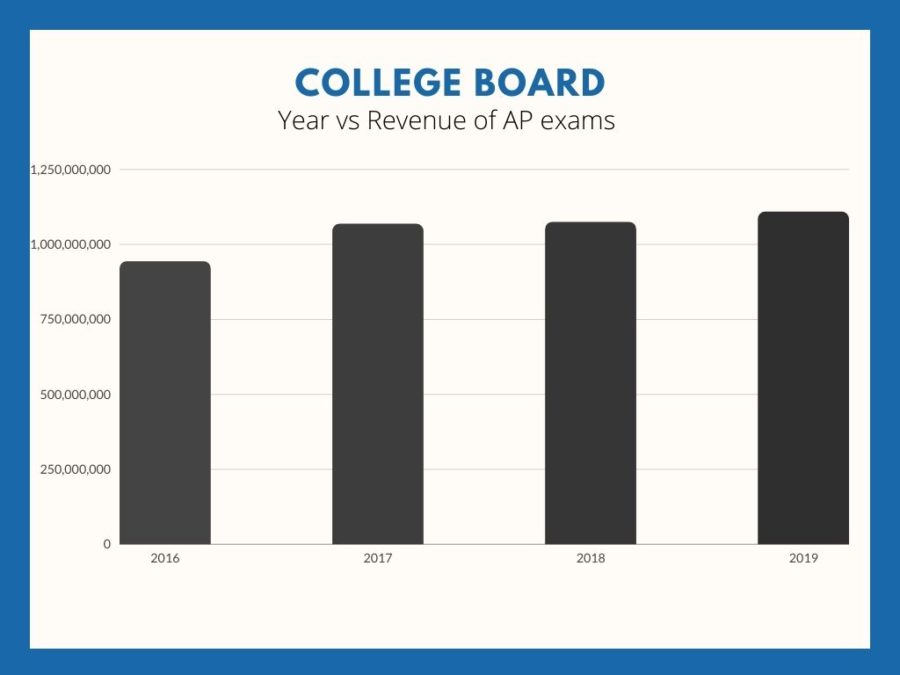How The College Board Is Failing Students Everywhere
Infographic created by Ella Mott
Information taken from the Federal Audit Clearinghouse
If you’re a high school student in America you’ve undoubtedly heard of the College Board and, of course, the loads of stress and anxiety that come with just mentioning the name.
By now, it’s no revelation that the College Board has a monopoly on standardized testing that feeds on high school students’ anxiety regarding AP exams and SAT/ACT scores. Not to mention it being an organization that is classified as a nonprofit under the national tax code that brings in a whopping $840 million per year through exploiting anxiety ridden students.
As if these few things weren’t enough problems, the effect that Covid-19 has had on the College Board has brought it to a whole new level of exploitation and disgrace.
Regardless of the pandemic, AP exams were administered at home in the years of 2020 and 2021. With this change came some modifications to the exams.
First off in 2020, the once three hour long exam turned into a 45 minute time period. Along with this, the format of the exam changed drastically. For example, an exam that would normally have 100 multiple choice questions and a short answer or long essay, was changed into a few short answer questions back to back.
Although the exam underwent all of these changes, that $80 price tag on the exams didn’t drop a dime.
Now I know what you’re thinking. What about the fee waivers that the College Board offers if students cannot afford the exam? As of a study in 2017 only one in four students used a fee waiver on their AP exams. Not because the majority of people could afford the exams, but because most people don’t meet the heavy and unrealistic requirements for a fee waiver.
Many families are right on the cusp of qualifying for a fee waiver, but are told that they have to pay full price because they don’t meet the income requirements to qualify. This leaves students high and dry to figure out a way to afford the exams that are, at this point, almost necessary for getting into your college of choice.
Now even though I believe that the price on these mini exams were unreasonable I will say that, in my opinion, the AP exams in 2020 were much easier to pass than the normal exams administered.
In my case, the AP Psychology exam that I was preparing for was originally 100 multiple choice questions and a series of short answers and I got off with four short answer questions that weren’t more than a paragraph long each.
So in saying this, you can imagine my surprise when I found out that the 2021 exams administered at home were full length as opposed to the mini exams we saw the previous year. Instead of a few short answer questions from the previous year, students were now facing long essays, short answers and full length multiple choice.
This back and forth changing the format of the exams has put even more stress on students with the added factor of surprise, usually not knowing what the format of our exam will be until a few months before the exams. Even now in 2021 if you ask almost any teacher at H-F how AP exams will look this year they have very little answers to give you.
Teachers are unaware of the format due to the College Boards incompetence in providing this information to students and teachers, leaving students in the dark but, of course, the deadline to pay for AP exams is fast approaching.
The College Board has made very little accommodations in these troubling times and expects families financially struggling through the pandemic to still be able to afford and provide AP, SAT and ACT exams amid the pandemic.
The already thin on ice organization has crossed the line with the way they handled the Covid-19 pandemic and in doing that, have failed high school students everywhere.




